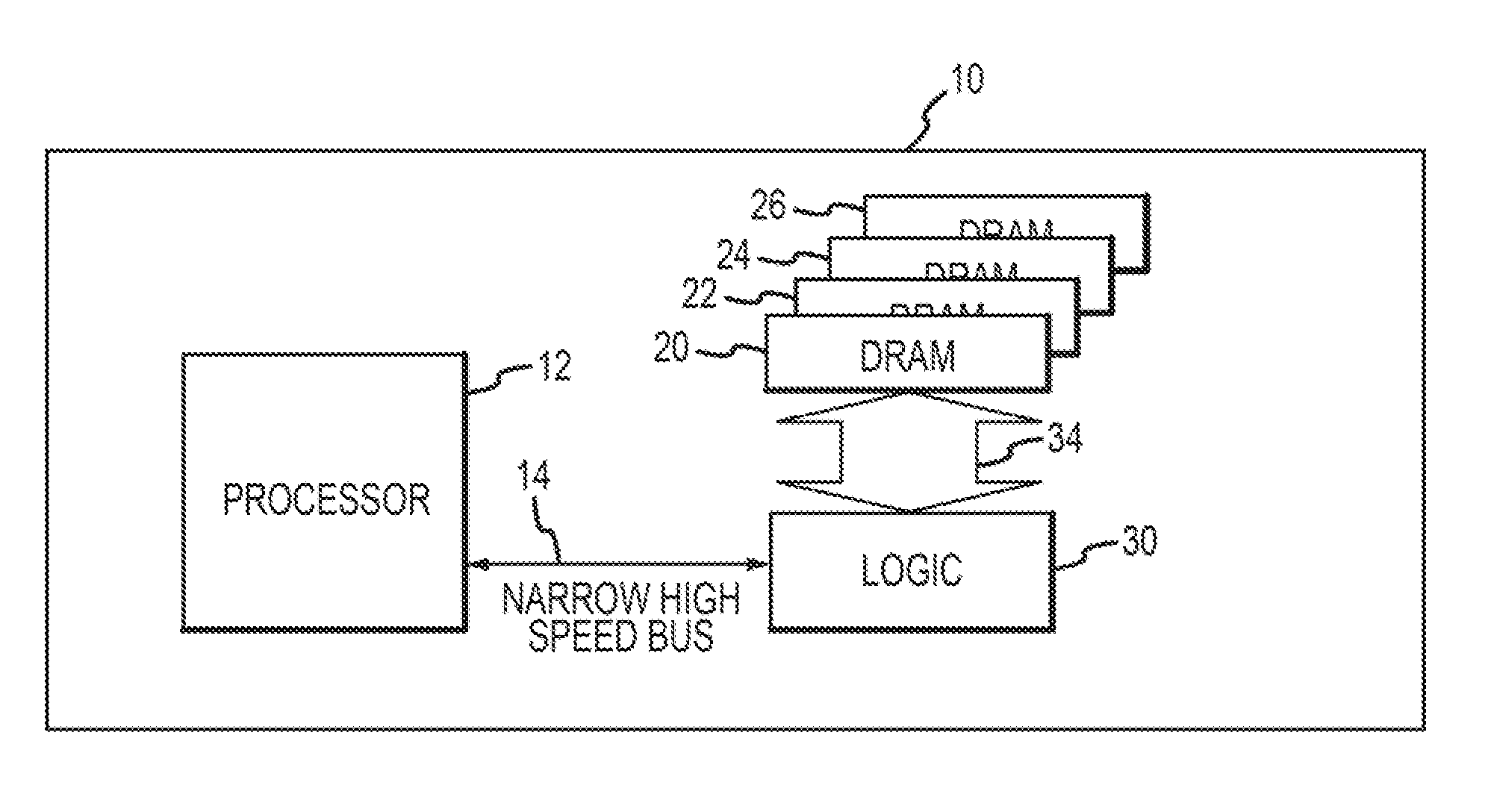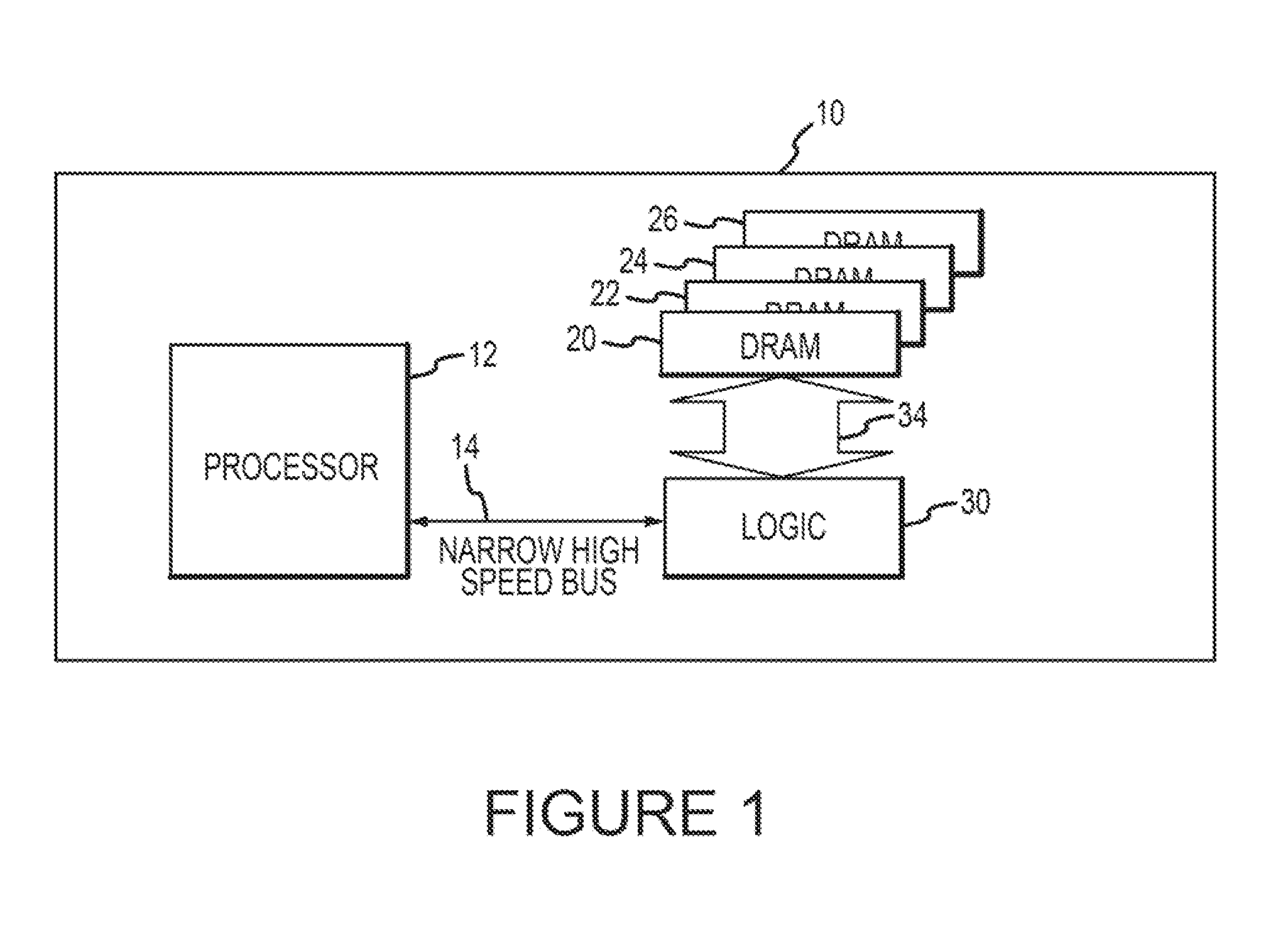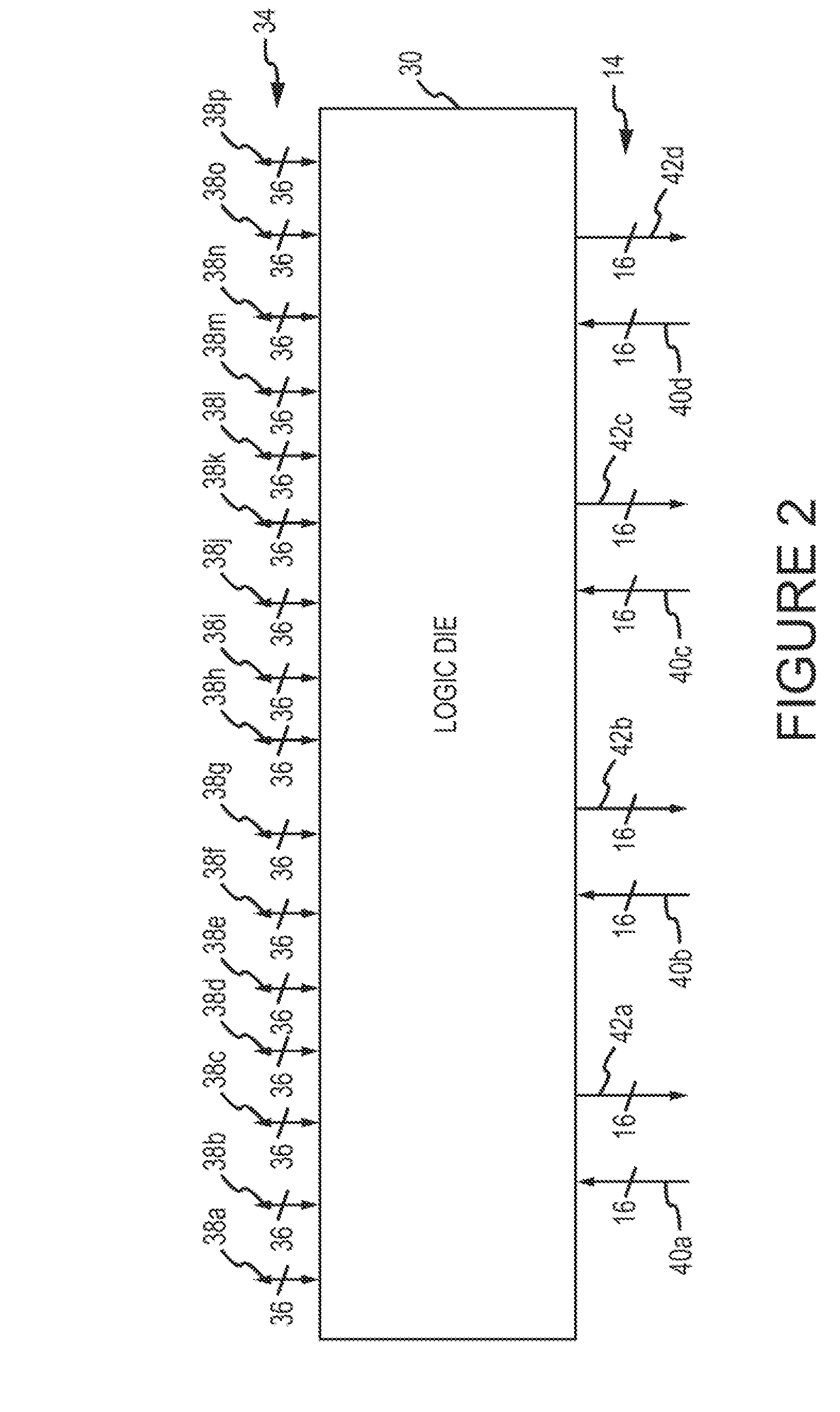Method and apparatus for repairing high capacity/high bandwidth memory devices
a memory device, high-bandwidth technology, applied in the field of memory devices, can solve the problems of slowing the performance of conventional computer systems, exacerbated problems, idle computer systems operating as high-end servers,
- Summary
- Abstract
- Description
- Claims
- Application Information
AI Technical Summary
Benefits of technology
Problems solved by technology
Method used
Image
Examples
Embodiment Construction
[0013]A computer system including a high-capacity, high bandwidth memory device 10 according to an embodiment of the invention is shown in FIG. 1 connected to a processor 12 through a relatively narrow high-speed bus 14 that is divided into downstream lanes and separate upstream lanes (not shown in FIG. 1). The memory device 10 includes 4 DRAM die 20, 22, 24, 26, which may be identical to each other, stacked on top of each other. Although the memory device 10 includes 4 DRAM die 20, 22, 24, 26, other embodiments of the memory device use a greater or lesser number of DRAM die. The DRAM dice 20, 22, 24, 26 are stacked on top of a logic die 30, which serves as the interface with the processor 12. The logic die 30 can implement a variety of functions in the memory device 10, such as to limit the number of functions that must be implemented in the DRAM dice 20, 22, 24, 26. For example, the logic die 30 may perform memory management functions, such as power management and refresh of memor...
PUM
 Login to View More
Login to View More Abstract
Description
Claims
Application Information
 Login to View More
Login to View More - R&D
- Intellectual Property
- Life Sciences
- Materials
- Tech Scout
- Unparalleled Data Quality
- Higher Quality Content
- 60% Fewer Hallucinations
Browse by: Latest US Patents, China's latest patents, Technical Efficacy Thesaurus, Application Domain, Technology Topic, Popular Technical Reports.
© 2025 PatSnap. All rights reserved.Legal|Privacy policy|Modern Slavery Act Transparency Statement|Sitemap|About US| Contact US: help@patsnap.com



